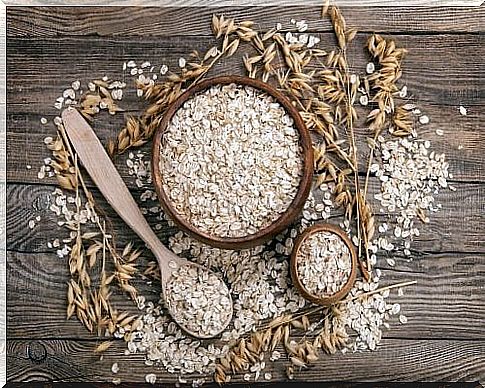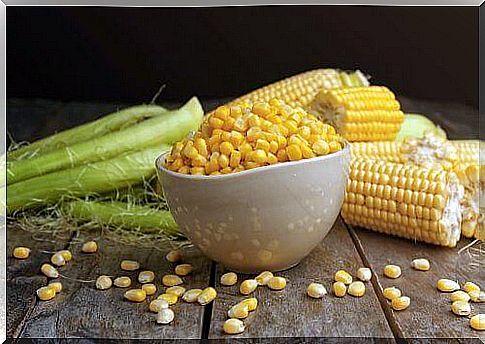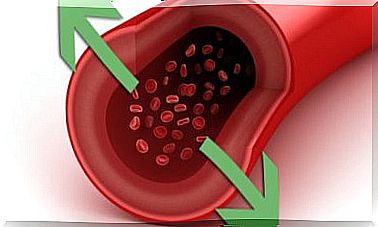Add These Seven Whole Grains To Your Diet

Whole grains are full of nutritional properties that are beneficial not only for health but also for weight loss and maintaining optimal weight when included in the diet. As a source of complex carbohydrates, whole grains are an essential part of any balanced diet. Read this article to learn more about what whole grains to add to your diet.
Unlike processed grains, whole grains retain their fiber content because they have not been modified by a chemical process. In addition, they are more easily absorbed by the body, as using fiber facilitates digestion and also helps prevent high blood sugar.
Above all, these grains are easy to add to your daily diet as they are quite varied and their taste mixes well with other ingredients. If this isn’t enough yet, eating them will make you feel fuller and thus you’re less likely to come to eat too much.
While the stores are full of breakfast cereals that look really appealing in their colorful and beautiful packaging, more and more people are choosing whole grains for their diet. These foods are much more complete in terms of their nutrients and offer significant benefits.
Have you heard of them?
Add these seven whole grains to your diet
1. Rolled oats

Oats stand out from the crowd as they are one of the most complete and nutritious grains. It contains more protein than other grains and is an awesome source of fiber, minerals and fatty acids.
Thanks to its slow-absorbing carbohydrates, oats are a truly energy-rich food that improves physical and mental performance. In addition, it helps control blood glucose levels, making it an excellent addition to the diet of people at risk for diabetes.
2. Wheat germ
Because wheat germ is high in protein and Omega-3 fatty acids, they are one of the best supplements to add to a healthy breakfast. All of these nutrients help protect muscles, optimize brain activity, and reduce inflammation.
Wheat embryos also contain vitamins B and E, which are essential for regulating metabolism and nervous system activity. They are also good sources of mineral salts that help maintain heart and kidney health.
3. Ohra

When it comes to whole grains, barley serves as a good ally in the treatment of high cholesterol. Its properties are due to cerocytocenoids in cereals, which are fat-soluble substances that work well with vitamin E.
Once the body has absorbed these substances, they move to block the production of hepatitis and bad cholesterol (LDL) while increasing the amount of good cholesterol (HDL).
In addition, the consumption of barley helps prevent constipation and slows down digestion due to its large amount of soluble fiber.
4. Dark rice
Most people use white rice in their regular diet as it is often the only rice sold in the store. And who exactly are we trying to fool ?! It tastes delicious. However, white rice loses up to 75% of its nutrients compared to dark rice.
Not only does dark rice retain all its fibers, but it also contains B vitamins, antioxidants and minerals such as magnesium. In addition, it is a major source of complex carbohydrates that provide energy to cells.
5. Buckwheat
Buckwheat is also known as black wheat. It is a grain that is well suited for people with celiac disease.
Although not as well known as previous cereal varieties, it is in its own league due to its abundant amount of minerals, vitamins and fiber. It also does not contain gluten.
Including this grain in your regular diet will not only help maintain optimal digestion, but will also benefit the nervous system. At the same time, it also creates a barrier against free radicals, reducing the risk of premature cell aging.
6. Cornflakes

Cornflakes are whole grains that can be included for breakfast or eaten as a snack. They are known to provide slow-absorbing carbohydrates that increase energy consumption and regulate glucose levels.
They also contain high-quality proteins that increase muscle firmness and improve heart health. As a result, the fiber and antioxidants they contain optimize digestion and protect the intestinal bacterial population.
7. Whole grain rye
Whole grain rye contains only 100 calories per 250 g and is a significant source of soluble and insoluble fibers. Incorporating it into your diet will therefore help control high cholesterol and prevent indigestion, such as constipation.
This cereal should be part of a weight loss diet. It is good for reducing the anxiety associated with eating sweets. While it is not a panacea to lose weight, it is a good addition to achieving better results when you follow a proper diet.
In summary, it could be said that foods containing whole grains contribute to the overall well-being of the mind and body. In short, their carbohydrate content helps maintain good energy levels as well as optimize glucose regulation.









